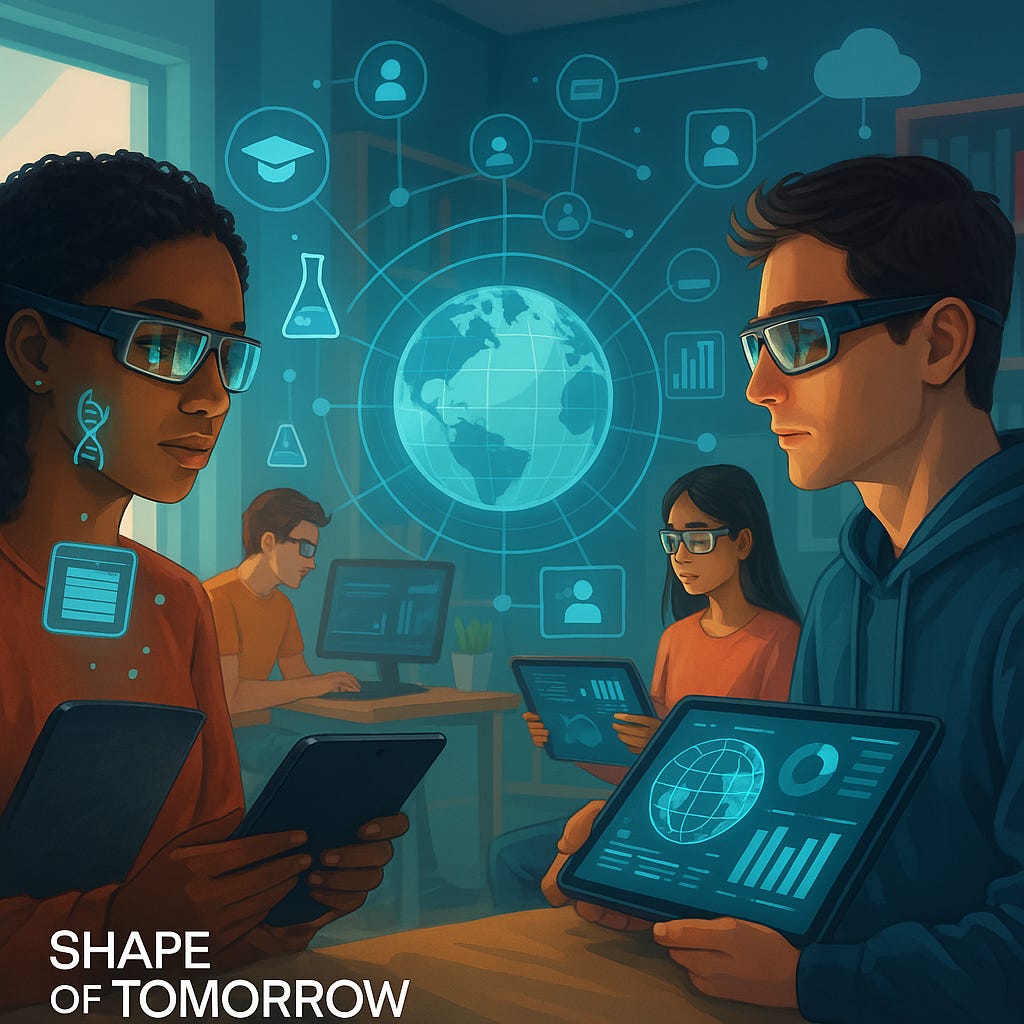From Classrooms to Cognitive Ecosystems
Education has always reflected the tools of its time. The blackboard, the printing press, and the internet each reshaped what it meant to learn. Yet the transition ahead is more profound than any of these. We are moving from static classrooms into cognitive ecosystems: dynamic environments where students engage with knowledge as an interactive partner rather than a fixed source.
The Shift from Content to Context
Most schools are still designed around the logic of content transfer. A teacher delivers, a student receives, and the act of learning is judged by recall and reproduction. This model presumes knowledge is scarce and must be stored in human memory for future retrieval. That assumption no longer holds. With information instantly available, the scarce resource is not knowledge itself but the ability to navigate, interpret, and apply it in fluid situations.
Spatial computing, augmented reality, and immersive platforms will turn a classroom into something closer to a cognitive gymnasium. Imagine students walking through a simulation of a coral reef collapse, not reading about it. The lesson is not a set of facts but a lived experience that demands interpretation. In this way, context becomes the true curriculum. Facts still matter, but they are scaffolding for meaning rather than the end state of learning.
Strategy for the Future of Learning
Schools and universities that cling to the industrial model of content transfer will find themselves obsolete. The forward-thinking institutions will design ecosystems that extend beyond their walls, drawing on data, simulation, and networks of expertise. Teachers will act less like lecturers and more like cognitive architects, guiding students through experiences that build judgment and adaptability.
Leaders must recognize that the boundary of the classroom is dissolving. What matters is not whether learning happens in a building or on a headset, but whether it cultivates the capacity to think across domains, to adapt in uncertainty, and to shape futures rather than simply inherit them. The real competitive advantage for any school or organization will not be the technology itself but the narrative it creates around learning as an active, participatory act.
The next generation will not ask what they were taught. They will ask what environments they were placed in, what questions they learned to wrestle with, and how those experiences expanded their ability to see possibility. Education is no longer about transferring knowledge into heads. It is about shaping ecosystems that expand minds.
Let’s reach as many educators and school leaders as possible. I’d love if you would share this with someone you know.

